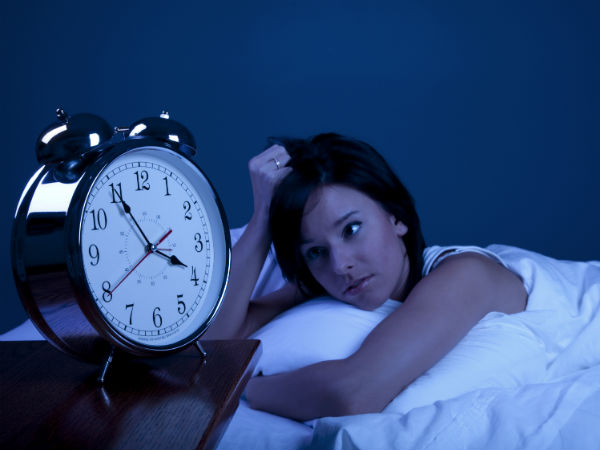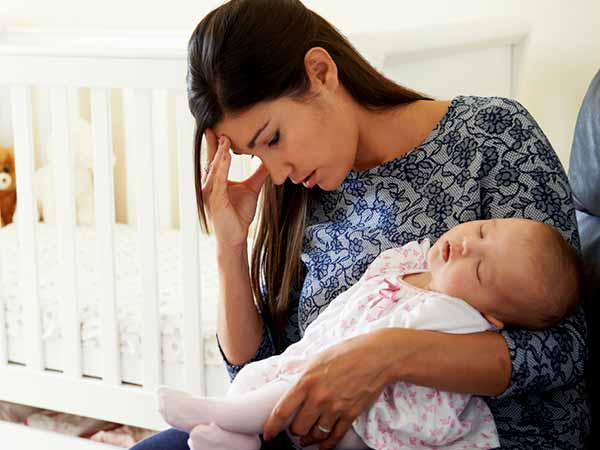Just In
- 5 hrs ago

- 5 hrs ago

- 9 hrs ago

- 15 hrs ago

Don't Miss
- Finance
 FREE, FREE, FREE! 3:1 Bonus: Pharma Stock Hits Back-To-Back Upper Circuits; 500 Shares To Earn Rs 1,69,500
FREE, FREE, FREE! 3:1 Bonus: Pharma Stock Hits Back-To-Back Upper Circuits; 500 Shares To Earn Rs 1,69,500 - Sports
 Manchester City vs Chelsea LIVE Streaming: Where to Watch FA Cup Semi-Final in India, UK, USA and Other Countries
Manchester City vs Chelsea LIVE Streaming: Where to Watch FA Cup Semi-Final in India, UK, USA and Other Countries - Movies
 Pukaar Dil Se Dil Tak Promo: Sayli Salunkhe Impresses In First Video Of Sony TV Show, Details About Her Role
Pukaar Dil Se Dil Tak Promo: Sayli Salunkhe Impresses In First Video Of Sony TV Show, Details About Her Role - News
 Chinese President Xi Jinping Orders Biggest Military Reorganisation Since 2015
Chinese President Xi Jinping Orders Biggest Military Reorganisation Since 2015 - Education
 Exam Pressure Does Not Exist; Studying Punctually is Crucial; Says Aditi, the PSEB 2024 Topper
Exam Pressure Does Not Exist; Studying Punctually is Crucial; Says Aditi, the PSEB 2024 Topper - Automobiles
 Suzuki Swift Hatchback Scores 4 Star Safety Rating At JNCAP – ADAS, New Engine & More
Suzuki Swift Hatchback Scores 4 Star Safety Rating At JNCAP – ADAS, New Engine & More - Technology
 Dell Introduces AI-Powered Laptops and Mobile Workstations for Enterprises in India
Dell Introduces AI-Powered Laptops and Mobile Workstations for Enterprises in India - Travel
 Journey From Delhi To Ooty: Top Transport Options And Attractions
Journey From Delhi To Ooty: Top Transport Options And Attractions
Postpartum Insomnia: Causes, Symptoms And Tips To Deal With It
Although denied by many, postpartum insomnia is not uncommon. The pregnancy days would have given you some deep sleep troubles with having to wake up every now and then to run to the washroom or run to the kitchen to satisfy your hunger pangs, especially during the third trimester. Every would-be mother would have fantasized how post delivery they can at least sleep while the baby is asleep. Well, is this fantasy for real? In reality, the answer is a big NO.
Your hospital stay just after delivery would have been a struggle, especially as the newborn would begin crying any minute and the nurses would come in for your regular checkups every now and then, preventing you from catching up even an hour of sleep at a stretch.

However, your expectations of coming back home to be able to sleep peacefully might not actually get fulfilled. Read on to get more insight about postpartum insomnia and what you can do to deal with it.
Understanding Postpartum Insomnia
Almost faced by every new mother, postpartum insomnia can get really stressful taking a toll on your health. The best way to understand insomnia post delivery is the fact that you are unable to sleep even when your little bundle of joy is cozily deep asleep. The reasons for this could be varied: you being anxious about the little one's health, being worried about life with an infant, etc.

Causes Of Postpartum Insomnia
Following are some of the possible causes of postpartum insomnia:
•
The
birthing
process
plays
havoc
on
your
hormones.
It
takes
time
for
your
body
to
normalize
again
post
delivery.
This
could
lead
to
your
internal
clock
also
turning
clueless
about
when
to
sleep
and
awaken.
•
Night
sweats
are
common
post
delivery.
The
hormones
are
responsible
for
this
again.
The
water
that
supported
you
and
your
baby
during
pregnancy
is
no
longer
needed
and
hence
flushed
out
in
the
form
of
sweating.
•
Emotional
challenges,
otherwise
also
referred
to
as
postpartum
depression,
can
give
you
a
tough
time
sleeping.
You
might
have
to
seek
help
from
a
professional
to
treat
your
depression
or
excess
anxiety.
•
Sleep
gets
disrupted
due
to
the
routine
night-time
feedings.
The
internal
clock
is
affected
due
to
you
frequently
waking
up
making
it
difficult
for
you
to
go
back
to
sleep.

Symptoms Of Postpartum Insomnia
•
The
stress
that
accompanies
caring
for
an
infant
along
with
the
inability
to
sleep
properly
leads
to
mood
swings.
Mood
swings
can
also
occur
due
to
postpartum
depression
that
needs
medical
attention.
•
You
get
irritated
easily
when
you
are
unable
to
take
ample
rest.
Even
one
night
of
sleep
deprivation
can
lead
to
rewiring
your
brain
for
more
power
to
the
so-called
"fight
or
flight" response.
•
When
you
have
had
days
of
insomnia,
you
are
bound
to
appear
emotionally
depressed
and
sad.
•
Inability
to
sleep
makes
you
more
anxious,
especially
when
your
mind
is
filled
with
thoughts
about
being
unable
to
sleep
the
next
night
as
well.

Tips To Deal With Postpartum Insomnia
•
Do
not
turn
on
bright
lights
when
you
wake
up
to
feed
your
baby
during
night
time.
Even
scrolling
through
emails
or
accessing
social
media
sites
can
actually
mess
with
your
internal
clock
and
make
it
a
challenge
for
you
to
go
back
to
sleep.
Bright
lights
or
electronic
device
signals
can
actually
make
your
body
believe
that
it
is
daytime.
•
If
you
have
a
caring
partner
who
is
willing
to
share
the
workload,
then
it
is
a
great
opportunity
for
you
to
take
a
bit
of
care
of
your
own
health
and
normalize
your
routine
sooner.
You
can
have
milk
pumped
into
bottles
that
your
partner
can
wake
up
and
help
administer
to
the
child.
This
would
prevent
you
from
having
to
wake
up
for
every
single
feed.
•
A
tip
that
has
been
passed
on
from
age-old
days
is
to
sleep
when
your
baby
sleeps.
Do
not
be
tempted
to
finish
off
chores
when
your
little
one
is
asleep.
Care
for
your
health
first,
at
least
for
the
first
couple
of
months.
•
Try
going
to
bed
early.
This
would
facilitate
you
to
find
more
time
to
rest.
Staying
up
late
will
not
help
as
you
would
need
to
anyway
wake
up
in
between
the
night
time
to
feed
and
comfort
your
child.
•
Keep
your
bedroom
free
of
things
like
electronic
devices,
television
and
work-related
stuff.
The
theory
works
like
training
your
mind
to
feel
sleepy
as
soon
as
you
go
into
the
bedroom.
Do
not
indulge
in
last-minute
official
works
just
prior
to
sleeping.
•
You
could
indulge
in
meditation
before
sleeping.
This
has
shown
to
help
plenty
of
new
mothers.
Relaxing
activities
such
as
a
warm
bath
or
a
massage
can
also
ensure
that
you
get
at
least
a
bit
of
sound
sleep.
•
Sleep
in
a
dark
room.
Our
sleep-wake
cycle
signals
us
to
feel
sleepy
when
the
lights
are
turned
off.
It
is,
therefore,
always
advised
that
you
do
not
turn
on
bright
lights
in
the
middle
of
the
night.
Having
dim,
soothing
lights
in
the
bedroom
can
help
you
avoid
preventing
messing
up
with
your
sleep-wakeup
cycle.
•
Limit
the
amount
of
caffeine
intake
that
you
have.
Just
two
cups
per
day
should
be
sufficient.
•
Deep
breathing
provides
relaxation.
You
can
lie
down
on
your
back
and
count
to
ten.
This
has
been
used
as
a
relaxing
and
calming
down
method
by
many.
-
 postnatalPostpartum Mood Swings (Baby Blues): What To Do About It
postnatalPostpartum Mood Swings (Baby Blues): What To Do About It -
 postnatalPostpartum Sweating: How Long Postpartum Night Sweats Last? Remedies
postnatalPostpartum Sweating: How Long Postpartum Night Sweats Last? Remedies -
 postnatalWhat Is Postpartum Gas? Causes, Symptoms, Treatment And Management Of This Common Post-Delivery Condition
postnatalWhat Is Postpartum Gas? Causes, Symptoms, Treatment And Management Of This Common Post-Delivery Condition -
 basics7 Healthy Beverages Women Can Consume For Postpartum Recovery
basics7 Healthy Beverages Women Can Consume For Postpartum Recovery -
 basicsGastrointestinal Problems After C-Section: Types And Treatment
basicsGastrointestinal Problems After C-Section: Types And Treatment -
 babySome Amazing Benefits Of Papaya For Babies
babySome Amazing Benefits Of Papaya For Babies -
 postnatalAyurvedic Herbs For Mothers For Lactation, Perineal Pain, Stretch Marks And More
postnatalAyurvedic Herbs For Mothers For Lactation, Perineal Pain, Stretch Marks And More -
 basicsBreast Yeast Infection: Causes, Symptoms, Risk Factors, Treatments And Prevention
basicsBreast Yeast Infection: Causes, Symptoms, Risk Factors, Treatments And Prevention -
 postnatalPostpartum Hair Loss: How To Deal With Hair Fall Post-Pregnancy
postnatalPostpartum Hair Loss: How To Deal With Hair Fall Post-Pregnancy -
 postnatalWhat Is A Padsicle? How To Make And Use It To Soothe Postpartum Pain
postnatalWhat Is A Padsicle? How To Make And Use It To Soothe Postpartum Pain -
 postnatalWhat Is Postpartum Bleeding? Know About Acute Postpartum Haemorrhage And Its Treatments
postnatalWhat Is Postpartum Bleeding? Know About Acute Postpartum Haemorrhage And Its Treatments -
 postnatalWhen Is The Right Time To Have Intercourse After Childbirth?
postnatalWhen Is The Right Time To Have Intercourse After Childbirth?


 Click it and Unblock the Notifications
Click it and Unblock the Notifications



